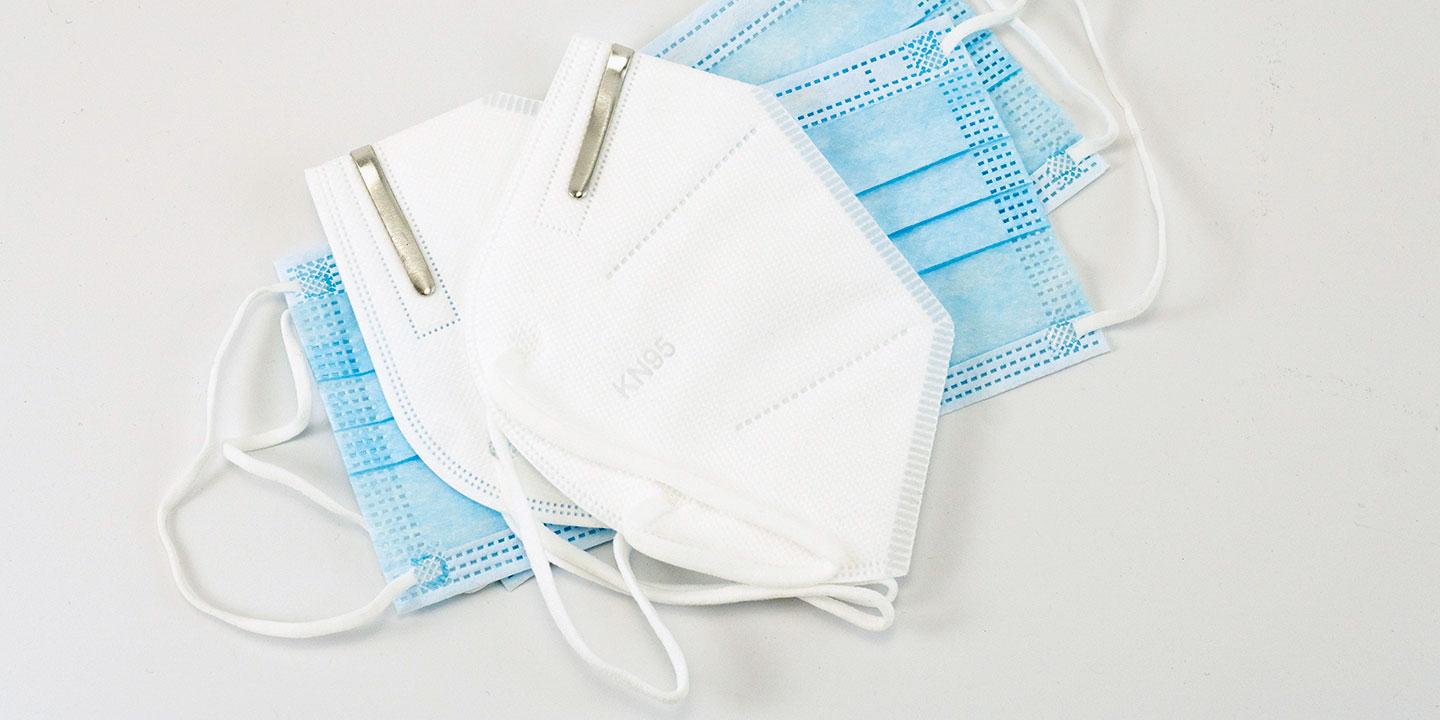Corona infection risks among health workers

Wearing respirators greatly reduces the risk of health care workers becoming infected with SARS-CoV-2 compared to surgical masks.
Health care workers (HCWs) are at increased risk of acquiring the coronavirus due to their occupation. Finding out how this group of people can be best protected is therefore a matter of great importance. Funded by the SNSF's special call on coronaviruses, a project by Philipp Kohler and his research group at the Cantonal Hospital St. Gallen has made an important contribution towards achieving this goal. They compared different types of masks and investigated the effect that the duration of contact with Covid-19 patients had on the risk of infection.
In total, nearly 3000 HCWs participated at seven different sites. The study lasted for one year, from September 2020 to September 2021. Once a week, participants reported the results of symptom-based coronavirus tests. At the end of the study, they were asked about the estimated exposure to Covid-19 patients and indicated which type of mask they had mainly worn. In addition, they were tested for Covid-19 antibodies three times in total, regardless of reported symptoms. 26% of the study participants became infected with Covid-19. The proportion among those without direct contact with sick people was only 13%. The comparison of mask types was also revealing. Wearing surgical masks offered significantly less protection. Of the persons wearing this type of mask, 35% became ill, while only 21% of those wearing respirators, such as an FFP2 mask, did so. The study shows a clear superiority of respirators compared to surgical masks in this respect. Another important variable in terms of the infection rate was the vaccination status of the HCWs. Covid-19 vaccination and consistent wearing of respirators can significantly reduce the risk of contracting Covid-19. The extent to which this also applies to newer variants of the virus still needs to be clarified.
